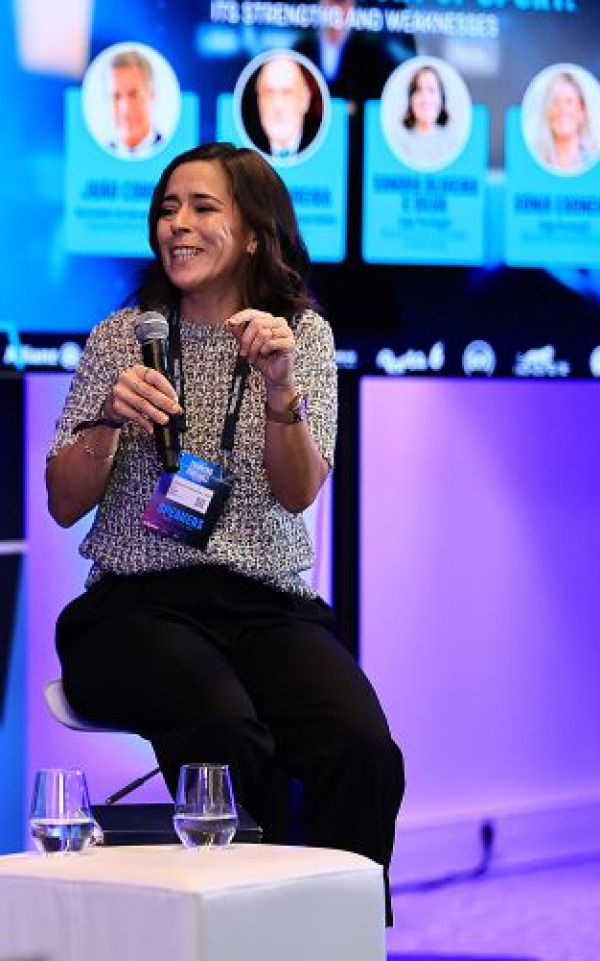Court of Arbitration for Sport: its virtues and weaknesses

Court of Arbitration for Sport: its virtues and weaknesses
The Portuguese Court of Arbitration for Sport (TAD), the primary decision-making body for sports justice in Portugal, took center stage on the first morning of the Thinking Football Summit 2024, with a discussion focused on its strengths, weaknesses, and the potential creation of a unified appeals body for sports justice. The debate was led by Sónia Carneiro.
Sandra Oliveira e Silva, who holds a PhD in Law, is a university lecturer, and serves as Chair of Liga Portugal's Commission of Instructors, acknowledged that TAD has seen general improvements, particularly in two key areas. "In the quality of its decisions, which has contributed to the development of administrative jurisdiction, and in the speed of decision-making, which is acceptable, with an average instruction time of 15 days," she emphasized.
When addressing the less favorable aspects of TAD, she noted: "It’s impossible to prevent appeals to the State Courts, given that there are five levels of judgment, which is unthinkable. How can we eliminate this entanglement? By modifying TAD to address the objections raised against it."
João Correia, a lawyer and former Secretary of State for Justice, reflected on TAD's establishment and its contribution to sports justice. "TAD didn’t come into existence by chance; it’s a product of my personal experience and the realization that there was a multiplicity of institutions addressing the same issues, creating confusion, particularly in football," he explained.
"The statutes of FIFA, UEFA, and the Portuguese Football Federation prohibit recourse to ordinary courts, so only an arbitration court could resolve such matters in sports law. Although TAD does not have jurisdiction over disciplinary matters, it handles all other disputes. On balance, its creation has been overwhelmingly positive," he added.
Lastly, Dias Ferreira, a lawyer, jurist, and mediator at TAD, shared his thoughts on how TAD could further elevate its standing. "First, greater transparency regarding its operations would be beneficial. Discipline should also be faster, with fewer appeals. A mechanism should be developed to limit the number of appeals. Furthermore, there should be changes in how referees are selected, with a panel of three members (a president and two rapporteurs), while ensuring the declaration of impartiality remains at the forefront of everyone’s mind," he concluded.
News
Historic: Women's football clubs surpass €100 Million in revenue
For the first time ever, the combined revenue of top women’s football clubs in key markets has exceeded ...
How to succeed in the Sports Industry? Four tips from Rafael Nadal
Rafael Nadal is renowned for his excellence, determination, and relentless pursuit of victory. With 22 Grand Slam ...
Al-Nassr signs Esports player for record-breaking fee
João Afonso, world champion in FIFA and EA Sports FC, known as "Jafonso," has made history with the most ...
Is Netflix prepared to stream major sporting events? Insights from the Jake Paul vs. Mike Tyson fight
The live broadcast of the Jake Paul vs. Mike Tyson boxing match on Netflix marked a significant step for the platform, ...
European Leagues and FIFPro vs. FIFA: Lawyer Gonçalo Almeida explains the complaint to the European Commission
The European Leagues, chaired by Pedro Proença, along with FIFPro, has filed a complaint with the European ...
